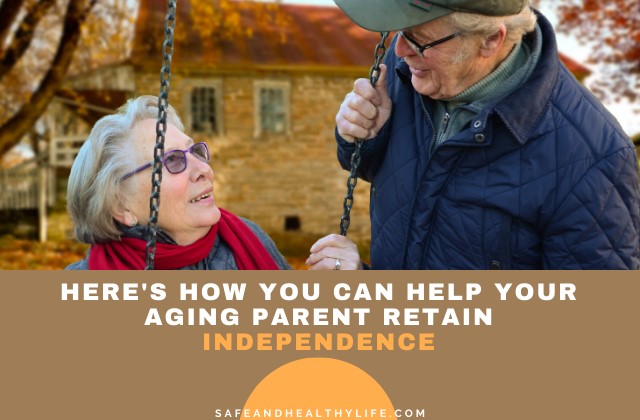
There will come a time when our parents will age. They won’t be as healthy, and their minds won’t be sharp as it was before. Their health can be compromised due to old age, and they will start needing help to perform activities of daily living.
While everyone deserves the chance to live independently and with dignity, we can’t help but worry about our senior parents. How can you not worry when your aging parent is all alone in their home?
The thing is, seniors still crave for independence. This becomes a problem once barriers to independence start showing up. This could be due to old age, handicaps, frailty, medical conditions, or even lack of money.
How can you help senior loved ones retain independence in the years ahead? Here are some tips worth considering.
Determine which areas your senior parents need help with
There are certain chores your parents need to accomplish on a daily, monthly, and even weekly basis. See what they need help with and list them down.
Do they need help cooking, driving, or following a medication schedule? Can they safely prepare and cook their meals? Do they need help in grooming themselves? Knowing what their caregiving needs are will help you formulate the best solutions.
Explore the different kinds of senior living options
Now that you know what type of assistance your parents need, it’s time to explore senior care options. Ask your parents if they are willing to move to a senior care facility, or stay in their home and receive elder care assisted living. Consider the pros and cons before making the final choice.
| Good Read: What Care Options Are Available for Aging People on a Budget? |
Find a competent caregiver to assist your parents with their needs
If your aging parent chooses to stay in their homes, then you may only need to hire a licensed caregiver that can assist them as needed.
Remember that what you want is to help your parents retain independence. If they can do a task without much struggle, then let them do it themselves.
Their caregiver will do the rest of the tasks they can’t perform safely, such as driving, cooking meals, and preparing their medications.
| Read also: 5 Tips to Take Care of Your Aging Parents While Crunching in a Busy Schedule |
Make sure they have the right healthcare insurance
Medical insurance is essential for all seniors. That is why we have Medicare. Make your elderly loved ones feel that they are not a burden by making sure they have the right insurance plan for their health needs.
As we age, we need to visit doctors regularly, and there will be some maintenance for medicines, and the most common drawback for seniors in opting not to do so is due to financial strains.
However, not all health insurance policies for seniors can fit their needs. Before making a decision, make sure to check out a reliable medical site to compare offers and see what plan is best for your senior.
Make necessary home modifications
More aging individuals choose to stay in their residences. However, as time passes by, their needs will change, and their house may no longer be safe enough to accommodate a senior.
Making home modifications can help create a sustainable home where seniors can safely age in peace. This can include installing easy-to-access showers, replacing regular toilets with a bidet toilet seat, adding a specialized bed handle, or even an assistive seating device.
| Good Read: 8 Aging-In-Place Home Modifications for Seniors |
Offer companionship
The thing about seniors living by themselves is they often feel lonely due to lack of companionship and their inability to perform their past hobbies.
By telling people they love, such as other family members, friends, and relatives to drop by, this can ease feelings of isolation and boost their mood. Ask people you trust to swing by to check on your aging parent.
If possible, give an aging parent a pet that can keep them company. Go for senior dogs. Giving your aging parent a pet can provide them with a renewed sense of purpose.
Our parents deserve our love and care, most especially during their senior years. Help your parents retain their independence and live with dignity.
About The Author:
Rachelle is a graduate of BS Psychology who grew up with her grandparents. She is currently studying at a medical school in Missouri to pursue her career and at the same time works as a content contributor for Mymedicarerates.com.




